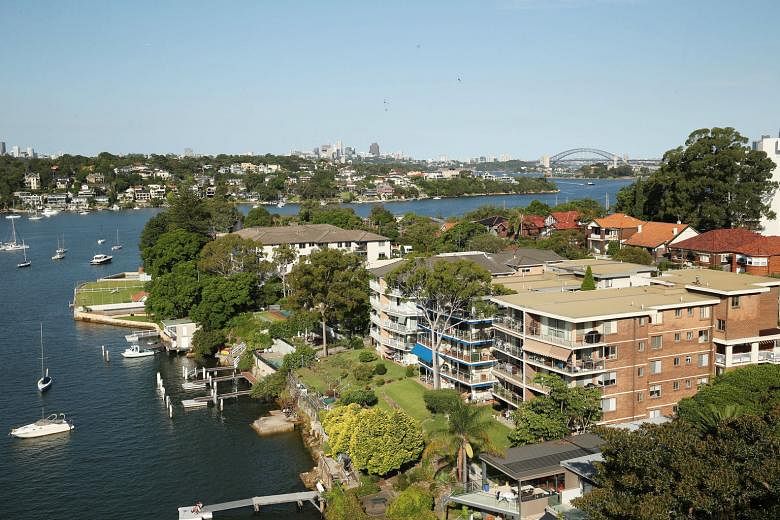SYDNEY • Sydney's property downturn accelerated last month, propelling nationwide house prices to the biggest monthly drop since the global financial crisis, as credit curbs and buyer nerves continue to bite.
Nationwide home values fell 0.7 per cent last month, led by a 1.4 per cent drop in Sydney and 1 per cent dip in Melbourne, according to CoreLogic data released yesterday.
The drop takes the total decline in Sydney since the July 2017 peak to 9.5 per cent, on the cusp of overtaking the 9.6 per cent top-to-bottom decline recorded during the last recession 27 years ago.
This decline is even steeper than the 1989-91 fall, showing how quickly sentiment has flipped.
November is usually the start of the peak selling season in Australia, so the deepening downturn points to continued weakness ahead.
However, because of the huge run-up in prices during the boom, property values have fallen back only to 2016 levels nationally, meaning few home owners are underwater.
A tightening of credit is the biggest factor weighing on the market, with banks winding back riskier lending - making it harder for investors - and becoming more stringent on verifying income and expenses, thus reducing the amount people can borrow.
This comes as Australian firms doled out a record amount in salaries last quarter, according to data released yesterday.
Gross company profits in the third quarter surged to an all-time peak of about A$90 billion (S$90.7 billion), up 1.9 per cent from a year ago. The solid performance allowed firms to hire more, inflating their wage bill to A$138.3 billion.
While the overall salary bill for corporates has surged, this has not translated into stellar pay hikes, with growth in the country's wage price index crawling at around 2.3 per cent.
That, coupled with the housing downturn, poses a political challenge for the ruling centre-right coalition with elections due next year.
That is also a major reason why the central bank is expected to keep rates at a record low 1.5 per cent at its December meeting today.
Interest rates have been on hold since August 2016, marking the longest period of unchanged policy since the cash rate was introduced in 1990. The futures market is not fully pricing in a hike until early 2020.
Many economists believe the housing downturn will hurt private consumption, with the household savings ratio already in decline.
"House prices and consumption are clearly correlated," Mr George Tharenou, a Sydney-based economist at UBS, wrote in a report.
"A 10 per cent fall in home prices alone could cut 2 per cent from nominal consumption in coming years," he added.
"We expect consumption to moderate from the strong 3 per cent (annual) pace in recent quarters, to 2.3 per cent in 2019."
REUTERS

